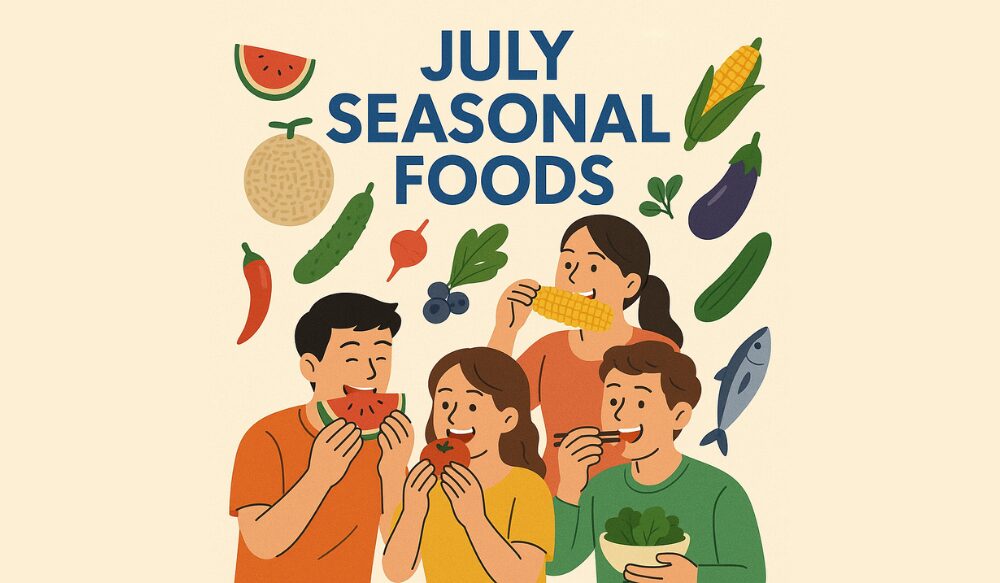From Watermelon to Abalone: Nature’s Gifts for a Healthy Summer
Seasonal foods in July offer the perfect remedy for summer fatigue and immune support
As the full heat of summer and the monsoon season arrive in July, one of the simplest and most effective ways to protect your health is to eat seasonal foods. Harvested at their peak, these ingredients are fresher, more nutritious, and more sustainable—making them the ideal choice for both your body and the planet.
What’s in Season This July?
July brings a rich variety of seasonal produce, from refreshing fruits to nutrient-packed vegetables, flavorful seafood, and functional wild greens.
- Fruits: Watermelon, Korean melon, peaches, plums, blueberries, grapes, figs, cherries, and more are high in water content, making them ideal for quenching thirst and promoting skin health.
- Vegetables: Cucumbers, eggplants, zucchini, tomatoes, corn, spinach, kale, and others help replenish fluids and provide vitamins and minerals to fight summer fatigue.
- Seafood: Gizzard shad, octopus, cutlassfish, abalone, eel, and similar seafood are rich in omega-3, protein, and vitamin D—perfect for restoring strength.
- Greens and roots: Bellflower root (doraji) and sweet potato stems offer anti-inflammatory and detoxifying benefits, strengthening the immune system.
Why Seasonal Eating Matters
Seasonal ingredients are harvested when their nutritional content is at its highest. They offer exceptional freshness and flavor while helping regulate body temperature, replenish lost minerals through sweat, and support recovery from fatigue.
Moreover, they’re more affordable due to reduced transportation costs and promote environmentally sustainable consumption.
Health Benefits and Smart Ways to Enjoy
- Fruits can be enjoyed fresh, in salads, juices, yogurt toppings, or as jam. Watermelon and Korean melon act as natural diuretics and help reduce swelling, while peaches, plums, and blueberries aid recovery and offer strong antioxidant properties.
- Vegetables are great raw, stir-fried, steamed, or in salads. Tomatoes, for instance, are rich in lycopene, known for preventing cardiovascular disease.
- Seafood like eel and abalone can be grilled, steamed, or simmered. Eel provides essential vitamin D and protein for energy recovery, while octopus and abalone support muscle recovery with their high protein content.
- Wild greens such as bellflower root are best blanched or seasoned to reduce bitterness and support respiratory health.
Watch Out for These When Eating Seasonal Foods
Even the healthiest foods can cause problems when consumed in excess.
- Fruits like watermelon and Korean melon may cause diarrhea or indigestion if overeaten. Diabetics should manage their intake carefully due to natural sugars.
- Seafood must be fresh and properly stored. Individuals with allergies should consume with caution.
- Vegetables eaten raw must be thoroughly washed to remove pesticide residues.
- Bellflower root is best cooked or seasoned to reduce its bitterness and improve digestibility.
Nature’s Prescription for Beating the Heat
When it comes to maintaining balance and energy during the sweltering summer months, few things are as effective as seasonal foods.
From crisp salads and refreshing fruit desserts to savory seafood dishes, July’s seasonal offerings provide both nourishment and comfort—just as nature intended.
© Fanwork. All rights reserved.





